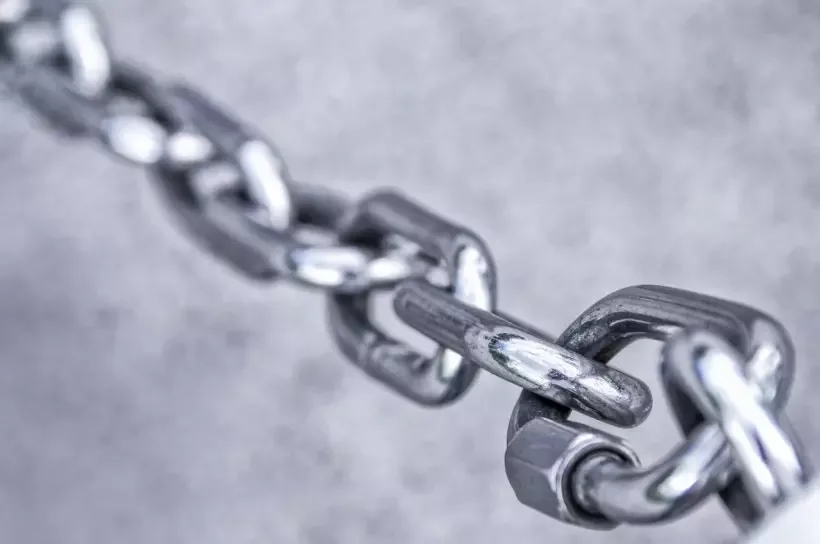Why is an NDA / non-disclosure agreement important?
An NDA (a non-disclosure agreement) is an essential legal tool for many independent professionals. It can mean the difference between a successful collaboration and unpleasant surprises afterwards. But why is an NDA so important? And what exactly does this non-disclosure agreement entail? We tell you more about so-called Non Disclosure Agreements and explain why they are so important. You can also read some concrete examples of how things can go wrong if you don't pay attention, and we share tips to properly protect your interests as a self-employed person. So read on quickly!
What is an NDA?
An NDA (Non-Disclosure Agreement) is a legal contract between two or more parties agreeing not to reveal confidential information to third parties. For freelancers and self-employed workers, this means that when you work with a client, you often get access to trade secrets, strategies, technical data or other confidential information. By signing an NDA, you document that this information will remain confidential and that you will not be allowed to share it without permission.
This document is a means of ensuring confidentiality, as well as a clear guideline for what may and may not be shared. This prevents crucial information from falling into the wrong hands, which can be harmful to both your client and you as a professional.
Why is an NDA important for self-employed professionals?
For self-employed professionals, knowledge is the most important asset. For example, if you are working on an original design or a unique marketing strategy, that information is invaluable. An NDA ensures that you don't accidentally or purposefully share this knowledge with competitors or other third parties. In this way, you protect your client's interests while maintaining your professional integrity.
When both parties sign an NDA, it provides a strong basis for cooperation. It creates a bond of trust where both parties know their sensitive information is safe. This can lead to smooth communication and better collaboration because everyone feels free to openly share ideas and innovations without fear of data leaks or misuse. Read more about the AVG and its importance for self-employed workers here.
Legal security and clear agreements
An NDA provides legal protection if information does unexpectedly leak out. If you notice that confidential data becomes known outside the organization, you can take legal action on the basis of the NDA. This gives you extra security as a freelancer and protects you from financial and reputational damage.
An NDA forces both parties to clearly formulate what is considered confidential information and what obligations ensue. This prevents misunderstandings and ambiguities. So you know exactly what may and may not be shared, and you know that your client expects the same. Clear agreements reduce risks and ensure that everyone involved is on the same page.
What can go wrong without an NDA?
Let's take a concrete example: suppose you have been hired as a freelancer for a project with an innovative technology company. During the project, you get access to their latest product developments and strategies. Without an NDA, the client runs the risk that this sensitive information will later fall into the hands of competitors. This can lead to a reduction in their competitive position and cause significant financial damage.
For you as a freelancer, the lack of an NDA can mean that you may later face legal claims from the client. They may claim that you leaked confidential information, which could result in legal action. This can lead not only to high costs, but also to reputational damage that could affect your future assignments.

How do you protect yourself with an NDA?
If you are approached for an assignment involving confidential information, don't be afraid to propose an NDA yourself. It is a sign of professionalism and shows that you take the interests of both yourself and the client seriously. This helps create an immediate basis of trust.
Don't be persuaded to just sign an NDA. Take the time to read the document thoroughly and make sure you understand all the clauses. If there are parts that are unclear or if you are unsure about the implications, do not hesitate to seek legal advice. This is essential to ensure that your rights as an independent contractor are well protected.
Make sure the NDA specifically states what is considered confidential information. This can range from technical data and client information to marketing strategies and financial figures. The more specific the agreements, the less room there is for misinterpretation. Also make sure there are clear provisions about what happens if the NDA is violated, such as penalty provisions or the possibility of legal action.
Discuss exceptions and document everything
An NDA doesn't have to last forever. Discuss with your client how long the NDA lasts and whether there are certain exceptions. For example, sometimes it may be relevant that certain information may still be disclosed after a certain period of time. Clear agreements about the duration and any exceptions can prevent future complications.
Make sure all confidentiality agreements are in writing. Keep copies of all signed documents and make sure you always have proof of the agreements made. This is invaluable if a dispute ever arises over compliance with the NDA.
Examples and consequences
Imagine you are a freelancer doing a project for a client, where you will have access to confidential information, such as business strategies or client data. If you do not draft or sign an NDA, there is a risk that this confidential information could be unintentionally shared with third parties or even misused by the client itself. For example, if the client uses the data to inform competitors or copy strategies without your permission, this could lead to reputational damage, loss of income or even legal consequences. Not having an NDA makes it harder for you to protect your rights because there are no formal agreements about what can and cannot be shared.
Always stay alert and critical
Don't be tempted by quick deals without carefully checking the legal details. Take the time to understand every part of the NDA and make sure there are no ambiguities about your responsibilities and rights. Invest in professional advice when dealing with complex NDAs. A lawyer who specializes in intellectual property and contracts for freelancers can help you avoid pitfalls and draft a watertight agreement.
As a self-employed person, the situation is somewhat different
Because you, as a self-employed person, do not pay payroll taxes on your own income, you are not automatically liable for chain liability. As a self-employed person, you may encounter this situation if you hire a company to do work for you, and that company uses personnel. Even if you hire an employee through an employment agency, you may be liable for payroll taxes and VAT as a self-employed person if the employment agency or hired company does not make these payments.
In such a case, it may be wise to apply for a G account. This prevents the Tax Authorities from holding your company liable for the payments of another company in the chain. It is important to make clear agreements about this with the subcontractor or lender, so that you know exactly which part of the payment goes to the Tax Authorities and which part to the hired company itself.

But how can you reduce the risks of chain liability?
It is wise to always request a statement of payment behaviour from the subcontractor or lender. This is a document in which the company confirms that it has paid all payroll taxes and VAT up to that point. This allows you to check whether the party you are working with has its affairs in order and does not pose a risk to you as a client. It is also important to keep a good administration of the amounts that you have to pay in wages, payroll taxes and VAT. This ensures that you always know how much must be deposited into your G account and prevents confusion.
Stricter legislation from January 2025
The introduction of stricter legislation from January 2025 makes it even more important to be well prepared for the risks of chain liability. From that moment on, the Tax and Customs Administration will fully enforce bogus self-employment. This means that companies that hire self-employed persons for work that they do not perform independently can receive a fine or additional assessment. This will be tackled strictly and the government wants to combat bogus constructions and offer the labor market more security. Employers and self-employed people will have a one-year transition period to demonstrate that they are taking action against bogus self-employment, but it is clear that companies and self-employed people need to pay close attention to their obligations and risks. If you get it right, you can ensure that your company is not held liable for unpaid taxes or premiums from your subcontractors. This will protect you and your business from unforeseen costs and potential legal problems.